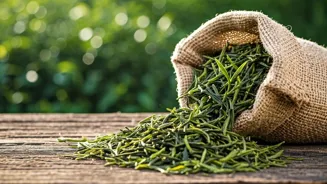The Core Issue
The heart of the matter lies in the concerns voiced by Indian small tea growers, who are grappling with the economic repercussions of cheaper tea imports.
These imports, particularly from Nepal, Kenya, and other African countries, are undercutting the market prices, making it difficult for local farmers to compete and maintain their livelihoods. The growers argue that these low-cost imports are not only affecting their profits but also jeopardizing the sustainability of the Indian tea industry, making them to advocate for drastic measures to protect their businesses from this economic threat. The situation highlights the delicate balance between free trade and the protection of local industries and jobs, a situation that is creating tensions and prompting strong reactions from the tea-growing community.
Import Duty Demand
To combat the adverse impacts of these low-priced imports, Indian small tea growers are calling for a significant intervention: a 100% import duty. This measure, if implemented, would substantially increase the cost of imported tea, making it less competitive in the Indian market. The primary goal is to level the playing field, allowing local tea producers to sell their product at prices that reflect the true cost of production. By imposing a high import duty, the growers hope to regain control over their market share and secure a more favorable financial standing. This strategic move underscores the growers' determination to safeguard the viability of their tea farms and the overall health of the Indian tea sector. The demand underscores the growers' stance on their right to earn a fair price for their products.
Impact of Imports
The influx of cheaper tea from foreign countries has created a multitude of challenges for Indian tea farmers. One of the most immediate effects is the price depression in the local market, where the competition from low-cost imports drives down the prices. Consequently, the growers struggle to cover their production costs and often experience reduced profits. The problem is further exacerbated by the fact that these imports often have lower quality standards and are produced under different regulations. This can lead to unfair competition and erode the trust consumers place in Indian-grown tea. The situation's impact isn't limited to the farmers; it also potentially threatens the jobs of workers employed in tea plantations and the long-term sustainability of tea cultivation in India.
Future Outlook
The Indian tea industry is now facing an uncertain future. The call for a 100% import duty reflects the intensity of the issue and the grower's willingness to defend their livelihoods. The potential formation of a cost study panel suggests that the government is taking the demands seriously and that potential solutions will be carefully considered. The findings of the panel and the decisions made in response to the growers' call will likely have a far-reaching impact. It will set the stage for the local tea industry, impacting future trade relations with the countries from where tea is imported and setting precedents for the protection of local industries. The outcome of these developments will significantly shape the landscape of the Indian tea industry for years to come.












